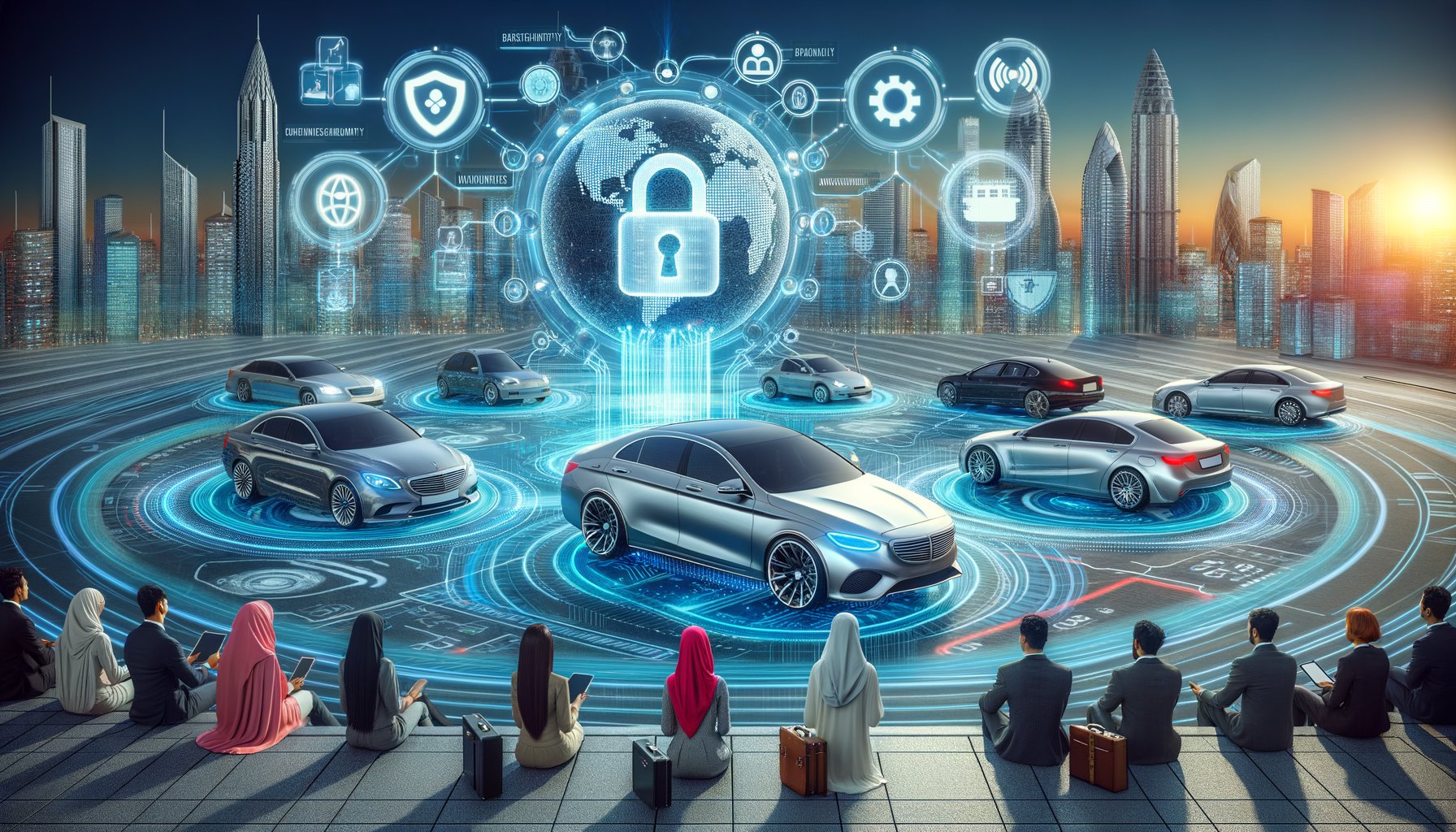Physical Address
304 North Cardinal St.
Dorchester Center, MA 02124
Physical Address
304 North Cardinal St.
Dorchester Center, MA 02124

In the ever-evolving landscape of technology, the automotive industry has been undergoing a significant transformation. The traditional automobile has evolved into a complex network of interconnected systems and devices, often referred to as ‘connected cars’. While these advancements offer enhanced functionality and convenience, they also present new challenges in terms of cybersecurity. This article delves into the importance of cybersecurity in modern cars and how it is being addressed to protect connected vehicles.
Connected cars are no longer a thing of science fiction; they are here and rapidly becoming the norm. These vehicles are equipped with internet access, allowing them to share data with other devices both inside and outside the car. From GPS navigation systems and infotainment consoles to advanced driver-assistance systems (ADAS), these features have revolutionised the driving experience.
However, with this increased connectivity comes an expanded attack surface for cybercriminals. As more features become automated and reliant on software, there’s a growing need for robust cybersecurity measures to protect against potential threats.
The risks associated with inadequate cybersecurity in connected cars can be severe. A successful cyberattack could lead to unauthorised access to sensitive data such as personal information or vehicle location. Worse still, hackers could potentially gain control over critical vehicle functions like steering, braking or acceleration – posing serious safety risks.
In 2015, security researchers demonstrated this vulnerability when they remotely hacked into a Jeep Cherokee’s entertainment system and took control of its engine, brakes and steering – all while the vehicle was on the highway. This incident served as a wake-up call for the automotive industry about the urgent need for enhanced cybersecurity measures.
Addressing cybersecurity in connected cars requires a multi-layered approach. This involves securing individual components, the internal network, and external communication channels.
Each connected component within a car, from the infotainment system to the engine control unit (ECU), needs to be secured. This can be achieved through methods like secure boot, which ensures that only software with a valid digital signature can run on the device, and data encryption, which makes data unreadable to unauthorised users.
In modern cars, various components communicate with each other over an internal network. To secure this network, techniques such as intrusion detection systems (IDS) can be used. These systems monitor network traffic for suspicious activities and alert the system or take preventive action when they detect potential threats.
Connected cars communicate with external devices via various channels like Wi-Fi, Bluetooth, and cellular networks. These communication channels need to be secured using technologies like firewalls and virtual private networks (VPNs).
As cybersecurity risks in connected cars become more apparent, there’s been an increased push for legislation to ensure manufacturers implement adequate security measures. In several countries including Australia and the US, lawmakers are drafting regulations requiring car manufacturers to meet certain cybersecurity standards.
The future of cybersecurity in connected cars is likely to involve even more advanced technologies. For example, artificial intelligence (AI) and machine learning could play a significant role in identifying and responding to cyber threats quickly and effectively.
In conclusion,
As connected cars become more prevalent, the importance of cybersecurity in protecting these vehicles cannot be overstated. The automotive industry, cybersecurity experts, and lawmakers must continue to collaborate and innovate to ensure that our connected cars remain secure as they become an increasingly integral part of our daily lives.